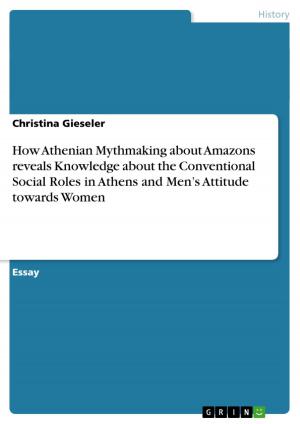Poland's Phyrric victory over bribery and collusion on its way to the European Union
Nonfiction, Social & Cultural Studies, Political Science, Politics, Economic Policy| Author: | Marta Agnieszka Marciniak | ISBN: | 9783638230711 |
| Publisher: | GRIN Publishing | Publication: | November 20, 2003 |
| Imprint: | GRIN Publishing | Language: | English |
| Author: | Marta Agnieszka Marciniak |
| ISBN: | 9783638230711 |
| Publisher: | GRIN Publishing |
| Publication: | November 20, 2003 |
| Imprint: | GRIN Publishing |
| Language: | English |
Seminar paper from the year 2003 in the subject Business economics - Economic Policy, grade: very good, Vienna University of Economics and Business (Interdisciplinary Institute for European Questions), course: Transformation in CEE and Enlargement of EU, 21 entries in the bibliography, language: English, abstract: Despite the bad impression Poland's position in the Transparency International Corruption Perceptions Index has remained unchanged since 1999. Nevertheless, corruption is not declining but rather growing in several areas. As a matter of fact, the number of scandals reporting 'irregularities' involving politicians and other public officials has been on the rise for the last two or three years. So is the discussion of legislation and other measures. Attention shall be drawn to the fact that the considerably higher number of convictions for corruption since 1998, as well as the more common presence of corruptionrelated topics in the media is rather due to greater media activity than thanks to the effectiveness of institutions of prosecution. According to several surveys corruption is most widespread in the healthcare system, judiciary, sub-national governments and central State administration. Furthermore, it is common in privatisation and off-budget agencies activities, political party finance, as well as in the tax and customs administration. Corruption becomes an important issue even in the private sector. This paper aims to elaborate the impact of the EU accession on the anticorruption policy. After presenting data and main areas of corruption, the most important institutions and legislation will be dealt with. It seems that public procurement is the area the most compatible with EU anti-corruption legislation. Consequently, this topic will be discussed in detail in this paper. As already mentioned, corruption in other areas is rather increasing as decreasing. The reasons and consequences for this development will not be dealt with explicitly in this paper, for, apparently, the EU accession process has not yet put enough pressure on authorities to take measures against these widespread practices.
Seminar paper from the year 2003 in the subject Business economics - Economic Policy, grade: very good, Vienna University of Economics and Business (Interdisciplinary Institute for European Questions), course: Transformation in CEE and Enlargement of EU, 21 entries in the bibliography, language: English, abstract: Despite the bad impression Poland's position in the Transparency International Corruption Perceptions Index has remained unchanged since 1999. Nevertheless, corruption is not declining but rather growing in several areas. As a matter of fact, the number of scandals reporting 'irregularities' involving politicians and other public officials has been on the rise for the last two or three years. So is the discussion of legislation and other measures. Attention shall be drawn to the fact that the considerably higher number of convictions for corruption since 1998, as well as the more common presence of corruptionrelated topics in the media is rather due to greater media activity than thanks to the effectiveness of institutions of prosecution. According to several surveys corruption is most widespread in the healthcare system, judiciary, sub-national governments and central State administration. Furthermore, it is common in privatisation and off-budget agencies activities, political party finance, as well as in the tax and customs administration. Corruption becomes an important issue even in the private sector. This paper aims to elaborate the impact of the EU accession on the anticorruption policy. After presenting data and main areas of corruption, the most important institutions and legislation will be dealt with. It seems that public procurement is the area the most compatible with EU anti-corruption legislation. Consequently, this topic will be discussed in detail in this paper. As already mentioned, corruption in other areas is rather increasing as decreasing. The reasons and consequences for this development will not be dealt with explicitly in this paper, for, apparently, the EU accession process has not yet put enough pressure on authorities to take measures against these widespread practices.















